Pulses
Pulses are a diverse group of edible seeds from legume plants, and they are a crucial source of nutrition and sustenance for people all around the world.
These small but mighty legumes encompass a wide variety of beans, lentils, and peas, each with its own unique flavor, texture, and nutritional profile. Here's some essential information about pulses:

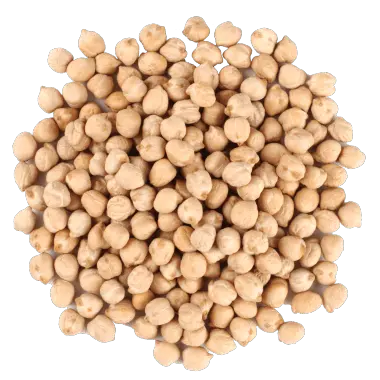
Kabuli Chickpeas
Grown in Canada Chickpeas Kabuli and Desi, the large Kabuli or Garbanzo beans or Bengal (7-10 mm) are colour beige and round. , Desi or Kala chana Chickpeas (6-7 mm) are colour yellow, light green, light brown and black that is called kala chana. The split Desi Chickpea is alo called Chana dal. gramor Kabuli chana
- >> Protein
- >> Fiber
- >> Folate - Vitamin B9
- >> Iron
- >> Potassium
- >> Manganese

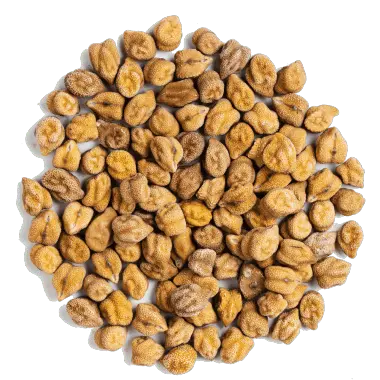
Desi Chickpeas
Grown in Canada Chickpeas Kabuli and Desi, the large Kabuli or Garbanzo beans or Bengal (7-10 mm) are colour beige and round. , Desi or Kala chana Chickpeas (6-7 mm) are colour yellow, light green, light brown and black that is called kala chana. The split Desi Chickpea is alo called Chana dal. gramor Kabuli chana
- >> Protein
- >> Fiber
- >> Folate - Vitamin B9
- >> Iron
- >> Potassium
- >> Manganese

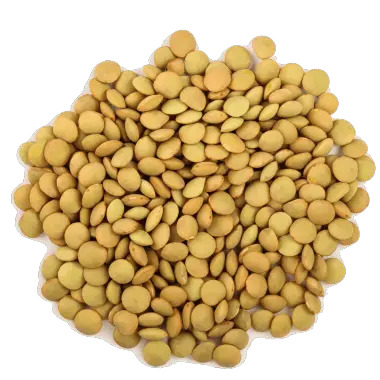
Eston Lentils
Canada is also the largest exporter of Lentils in the world producing in large quantities Large Green (Laird Lentil) or Masoor Large Green (6-7mm), Split Large Green or Yellow Split Lentil or Masoor dal, Red Lentil or Masoor , Red Split Lentil or Masoor dal, Dehulled Red or Football Lentil or Masoordal, Small Green or Eston type or Masoor Small Green (4.45mm) , Medium Green Lentil or Richlea- type or Masoor medium Green . In a smaller production; Spanish Brown or Pardina (40-45mg)
- >> Protein
- >> Fiber
- >> Folate - Vitamin B9
- >> Iron
- >> Potassium
- >> Manganese

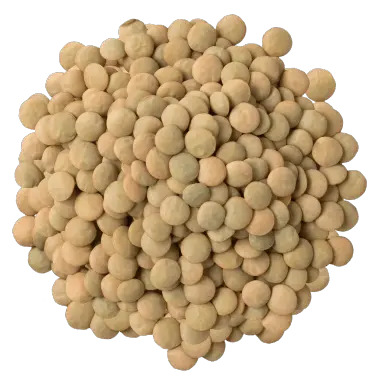
Laird Lentils
Canada is also the largest exporter of Lentils in the world producing in large quantities Large Green (Laird Lentil) or Masoor Large Green (6-7mm), Split Large Green or Yellow Split Lentil or Masoor dal, Red Lentil or Masoor , Red Split Lentil or Masoor dal, Dehulled Red or Football Lentil or Masoordal, Small Green or Eston type or Masoor Small Green (4.45mm) , Medium Green Lentil or Richlea- type or Masoor medium Green . In a smaller production; Spanish Brown or Pardina (40-45mg)
- >> Protein
- >> Fiber
- >> Folate - Vitamin B9
- >> Iron
- >> Potassium
- >> Manganese

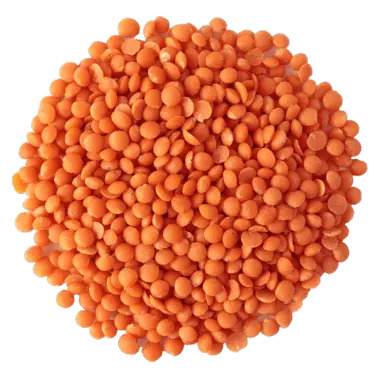
Red Football Lentils
Canada is also the largest exporter of Lentils in the world producing in large quantities Large Green (Laird Lentil) or Masoor Large Green (6-7mm), Split Large Green or Yellow Split Lentil or Masoor dal, Red Lentil or Masoor , Red Split Lentil or Masoor dal, Dehulled Red or Football Lentil or Masoordal, Small Green or Eston type or Masoor Small Green (4.45mm) , Medium Green Lentil or Richlea- type or Masoor medium Green . In a smaller production; Spanish Brown or Pardina (40-45mg)
- >> Protein
- >> Fiber
- >> Folate - Vitamin B9
- >> Iron
- >> Potassium
- >> Manganese

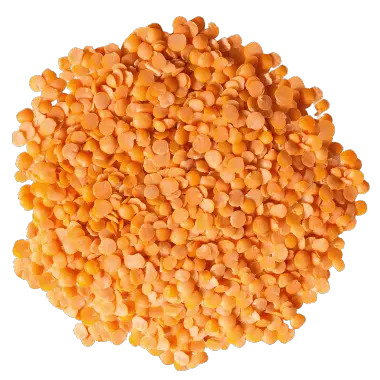
Red Split Lentils
Canada is also the largest exporter of Lentils in the world producing in large quantities Large Green (Laird Lentil) or Masoor Large Green (6-7mm), Split Large Green or Yellow Split Lentil or Masoor dal, Red Lentil or Masoor , Red Split Lentil or Masoor dal, Dehulled Red or Football Lentil or Masoordal, Small Green or Eston type or Masoor Small Green (4.45mm) , Medium Green Lentil or Richlea- type or Masoor medium Green . In a smaller production; Spanish Brown or Pardina (40-45mg)
- >> Protein
- >> Fiber
- >> Folate - Vitamin B9
- >> Iron
- >> Potassium
- >> Manganese

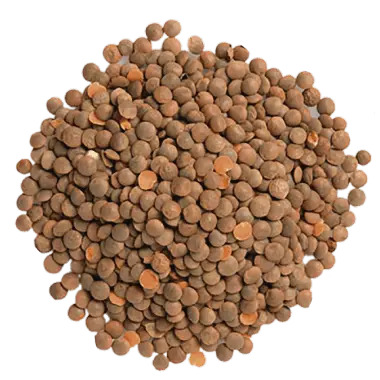
Whole Red Lentils
Canada is also the largest exporter of Lentils in the world producing in large quantities Large Green (Laird Lentil) or Masoor Large Green (6-7mm), Split Large Green or Yellow Split Lentil or Masoor dal, Red Lentil or Masoor , Red Split Lentil or Masoor dal, Dehulled Red or Football Lentil or Masoordal, Small Green or Eston type or Masoor Small Green (4.45mm) , Medium Green Lentil or Richlea- type or Masoor medium Green . In a smaller production; Spanish Brown or Pardina (40-45mg)
- >> Protein
- >> Fiber
- >> Folate - Vitamin B9
- >> Iron
- >> Potassium
- >> Manganese

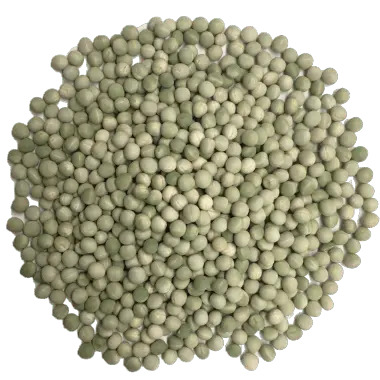
Green Peas
As the largest producer of the world, Canada produces mostly Green and Yellow Peas, other kinds in smaller production are maple, marrowfat and Austrian winter. Split and whole peas. Peas are excellent source of energy amino acid and protein.
- >> Protein
- >> Fiber
- >> Folate - Vitamin B9
- >> Iron
- >> Potassium
- >> Manganese

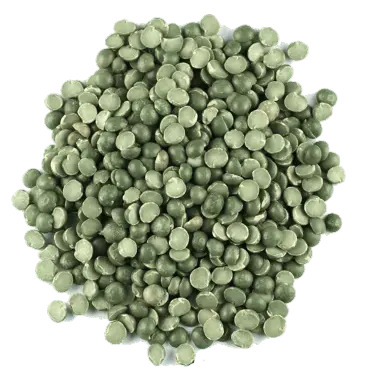
Green Split Peas
As the largest producer of the world, Canada produces mostly Green and Yellow Peas, other kinds in smaller production are maple, marrowfat and Austrian winter. Split and whole peas. Peas are excellent source of energy amino acid and protein.
- >> Protein
- >> Fiber
- >> Folate - Vitamin B9
- >> Iron
- >> Potassium
- >> Manganese

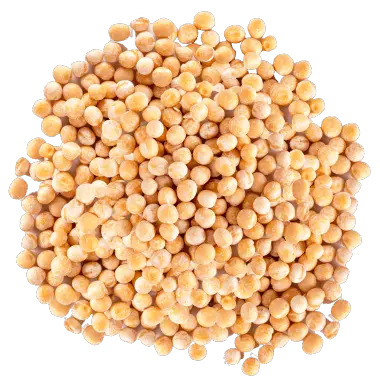
Yellow Peas
As the largest producer of the world, Canada produces mostly Green and Yellow Peas, other kinds in smaller production are maple, marrowfat and Austrian winter. Split and whole peas. Peas are excellent source of energy amino acid and protein.
- >> Protein
- >> Fiber
- >> Folate - Vitamin B9
- >> Iron
- >> Potassium
- >> Manganese

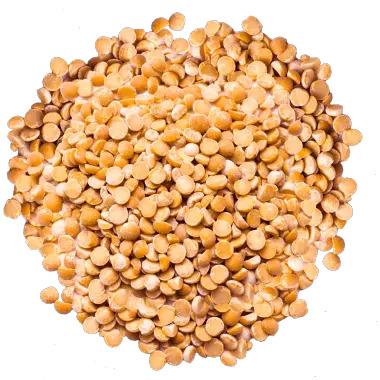
Yellow Split Peas
As the largest producer of the world, Canada produces mostly Green and Yellow Peas, other kinds in smaller production are maple, marrowfat and Austrian winter. Split and whole peas. Peas are excellent source of energy amino acid and protein.
- >> Protein
- >> Fiber
- >> Folate - Vitamin B9
- >> Iron
- >> Potassium
- >> Manganese

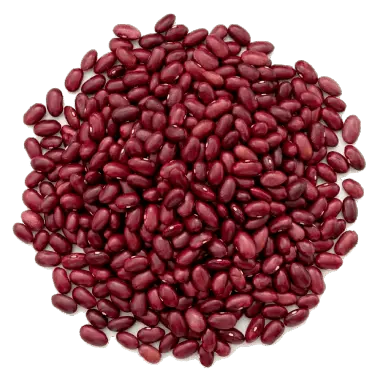
Dark Red Kidney Beans
Canada’s weather is optimal for pulse grown, Long sunny days in the summer and soil conditions provides Canada with a great production, also cold winters protect pulses from disease and insects and preserves the quality of the product for storage. High in complex carbohydrates, protein and fiber, low in fat and sodium, the super food. Pulses supply 90% of the plant’s nitrogen requirements.
- >> Protein
- >> Fiber
- >> Folate - Vitamin B9
- >> Iron
- >> Potassium
- >> Manganese

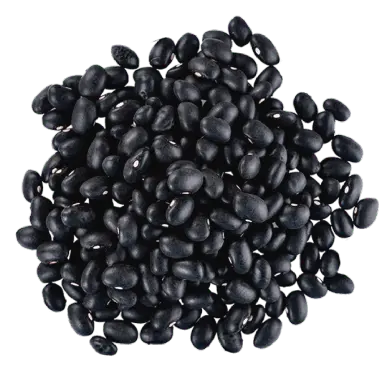
Black Beans
Canada’s weather is optimal for pulse grown, Long sunny days in the summer and soil conditions provides Canada with a great production, also cold winters protect pulses from disease and insects and preserves the quality of the product for storage. High in complex carbohydrates, protein and fiber, low in fat and sodium, the super food. Pulses supply 90% of the plant’s nitrogen requirements.
- >> Protein
- >> Fiber
- >> Folate - Vitamin B9
- >> Iron
- >> Potassium
- >> Manganese

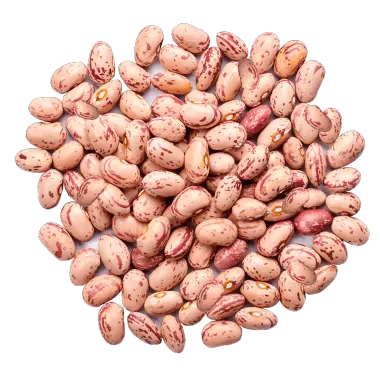
Cranberry Beans
Canada’s weather is optimal for pulse grown, Long sunny days in the summer and soil conditions provides Canada with a great production, also cold winters protect pulses from disease and insects and preserves the quality of the product for storage. High in complex carbohydrates, protein and fiber, low in fat and sodium, the super food. Pulses supply 90% of the plant’s nitrogen requirements.
- >> Protein
- >> Fiber
- >> Folate - Vitamin B9
- >> Iron
- >> Potassium
- >> Manganese

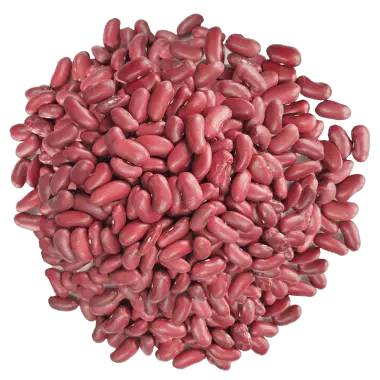
Ligth red Kidney Beans
Canada’s weather is optimal for pulse grown, Long sunny days in the summer and soil conditions provides Canada with a great production, also cold winters protect pulses from disease and insects and preserves the quality of the product for storage. High in complex carbohydrates, protein and fiber, low in fat and sodium, the super food. Pulses supply 90% of the plant’s nitrogen requirements.
- >> Protein
- >> Fiber
- >> Folate - Vitamin B9
- >> Iron
- >> Potassium
- >> Manganese

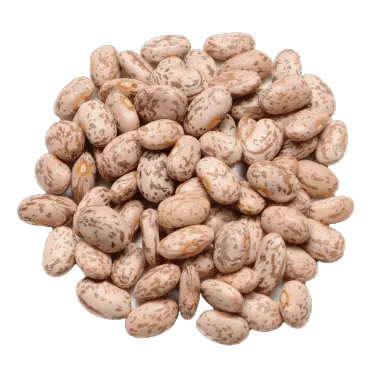
Pinto Beans
Canada’s weather is optimal for pulse grown, Long sunny days in the summer and soil conditions provides Canada with a great production, also cold winters protect pulses from disease and insects and preserves the quality of the product for storage. High in complex carbohydrates, protein and fiber, low in fat and sodium, the super food. Pulses supply 90% of the plant’s nitrogen requirements.
- >> Protein
- >> Fiber
- >> Folate - Vitamin B9
- >> Iron
- >> Potassium
- >> Manganese

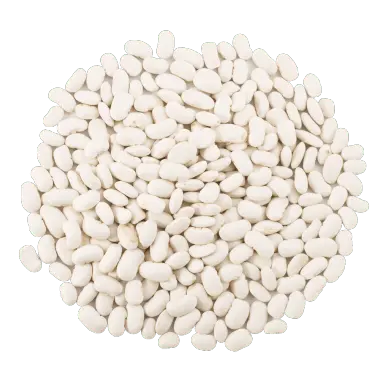
Great Northern Beans
Canada’s weather is optimal for pulse grown, Long sunny days in the summer and soil conditions provides Canada with a great production, also cold winters protect pulses from disease and insects and preserves the quality of the product for storage. High in complex carbohydrates, protein and fiber, low in fat and sodium, the super food. Pulses supply 90% of the plant’s nitrogen requirements.
- >> Protein
- >> Fiber
- >> Folate - Vitamin B9
- >> Iron
- >> Potassium
- >> Manganese

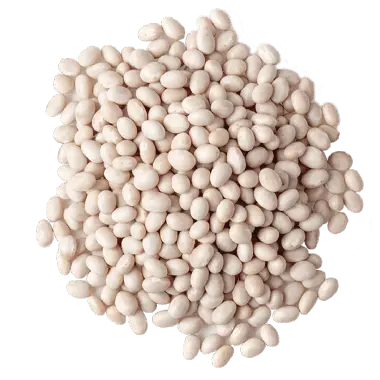
Navy Beans
Canada’s weather is optimal for pulse grown, Long sunny days in the summer and soil conditions provides Canada with a great production, also cold winters protect pulses from disease and insects and preserves the quality of the product for storage. High in complex carbohydrates, protein and fiber, low in fat and sodium, the super food. Pulses supply 90% of the plant’s nitrogen requirements.
- >> Protein
- >> Fiber
- >> Folate - Vitamin B9
- >> Iron
- >> Potassium
- >> Manganese

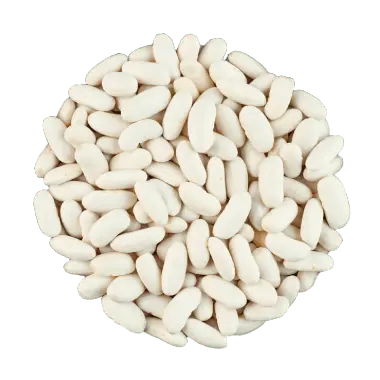
White Kidney Beans
Canada’s weather is optimal for pulse grown, Long sunny days in the summer and soil conditions provides Canada with a great production, also cold winters protect pulses from disease and insects and preserves the quality of the product for storage. High in complex carbohydrates, protein and fiber, low in fat and sodium, the super food. Pulses supply 90% of the plant’s nitrogen requirements.
- >> Protein
- >> Fiber
- >> Folate - Vitamin B9
- >> Iron
- >> Potassium
- >> Manganese

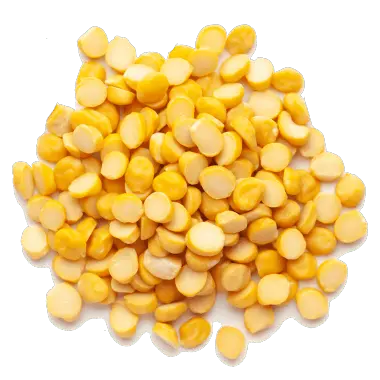
Chana Dal
Chana dal is a type of lentil that is commonly used in Indian cuisine. It is made by splitting and removing the outer layer of a larger black chickpea, revealing a smaller, cream-colored lentil. Chana dal has a nutty, slightly sweet flavor and a firm texture that holds its shape well when cooked. It is often used in soups, curries, and side dishes and is a good source of protein, fiber, and other essential nutrients.
- >> Protein
- >> Fiber
- >> Folate - Vitamin B9
- >> Iron
- >> Potassium
- >> Manganese

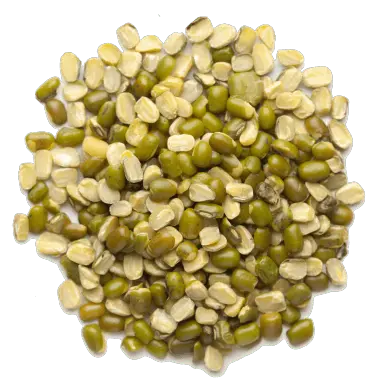
Moong Dal Chilka
Chana dal is a type of lentil that is commonly used in Indian cuisine. It is made by splitting and removing the outer layer of a larger black chickpea, revealing a smaller, cream-colored lentil. Chana dal has a nutty, slightly sweet flavor and a firm texture that holds its shape well when cooked. It is often used in soups, curries, and side dishes and is a good source of protein, fiber, and other essential nutrients.
- >> Protein
- >> Fiber
- >> Folate - Vitamin B9
- >> Iron
- >> Potassium
- >> Manganese

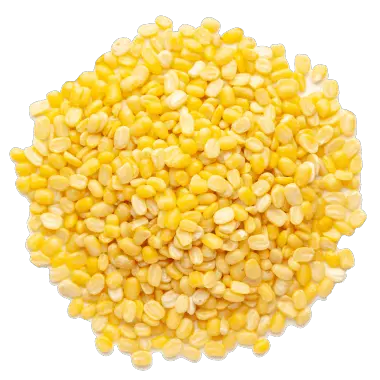
Moong Dal Wash
Chana dal is a type of lentil that is commonly used in Indian cuisine. It is made by splitting and removing the outer layer of a larger black chickpea, revealing a smaller, cream-colored lentil. Chana dal has a nutty, slightly sweet flavor and a firm texture that holds its shape well when cooked. It is often used in soups, curries, and side dishes and is a good source of protein, fiber, and other essential nutrients.
- >> Protein
- >> Fiber
- >> Folate - Vitamin B9
- >> Iron
- >> Potassium
- >> Manganese

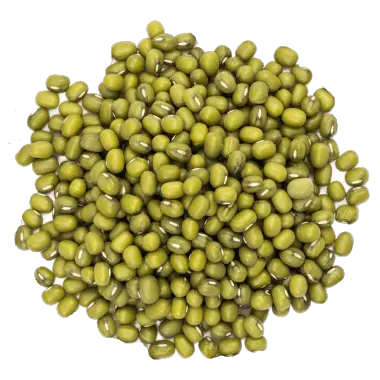
Moong Whole
Chana dal is a type of lentil that is commonly used in Indian cuisine. It is made by splitting and removing the outer layer of a larger black chickpea, revealing a smaller, cream-colored lentil. Chana dal has a nutty, slightly sweet flavor and a firm texture that holds its shape well when cooked. It is often used in soups, curries, and side dishes and is a good source of protein, fiber, and other essential nutrients.
- >> Protein
- >> Fiber
- >> Folate - Vitamin B9
- >> Iron
- >> Potassium
- >> Manganese

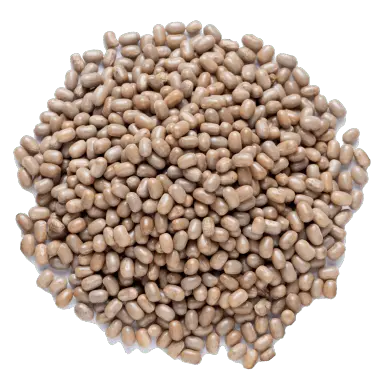
Moot Whole
Chana dal is a type of lentil that is commonly used in Indian cuisine. It is made by splitting and removing the outer layer of a larger black chickpea, revealing a smaller, cream-colored lentil. Chana dal has a nutty, slightly sweet flavor and a firm texture that holds its shape well when cooked. It is often used in soups, curries, and side dishes and is a good source of protein, fiber, and other essential nutrients.
- >> Protein
- >> Fiber
- >> Folate - Vitamin B9
- >> Iron
- >> Potassium
- >> Manganese

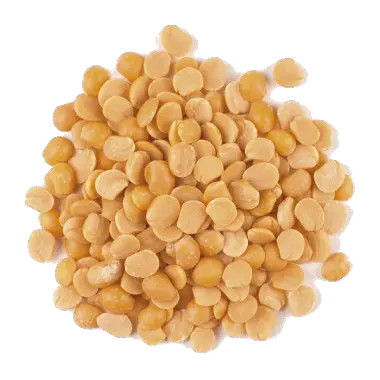
Toor Dal
Toor Dal is a type of lentil that is commonly used in Indian cuisine. It is made by splitting and removing the outer layer of a larger black chickpea, revealing a smaller, cream-colored lentil. Chana dal has a nutty, slightly sweet flavor and a firm texture that holds its shape well when cooked. It is often used in soups, curries, and side dishes and is a good source of protein, fiber, and other essential nutrients.
- >> Protein
- >> Fiber
- >> Folate - Vitamin B9
- >> Iron
- >> Potassium
- >> Manganese

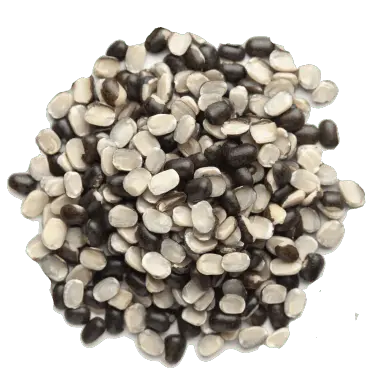
Urad Dal Chilka
Chana dal is a type of lentil that is commonly used in Indian cuisine. It is made by splitting and removing the outer layer of a larger black chickpea, revealing a smaller, cream-colored lentil. Chana dal has a nutty, slightly sweet flavor and a firm texture that holds its shape well when cooked. It is often used in soups, curries, and side dishes and is a good source of protein, fiber, and other essential nutrients.
- >> Protein
- >> Fiber
- >> Folate - Vitamin B9
- >> Iron
- >> Potassium
- >> Manganese

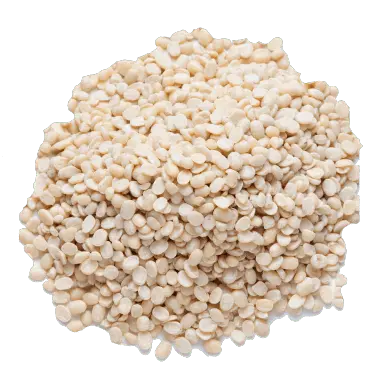
Urad Dal Wash
Chana dal is a type of lentil that is commonly used in Indian cuisine. It is made by splitting and removing the outer layer of a larger black chickpea, revealing a smaller, cream-colored lentil. Chana dal has a nutty, slightly sweet flavor and a firm texture that holds its shape well when cooked. It is often used in soups, curries, and side dishes and is a good source of protein, fiber, and other essential nutrients.
- >> Protein
- >> Fiber
- >> Folate - Vitamin B9
- >> Iron
- >> Potassium
- >> Manganese

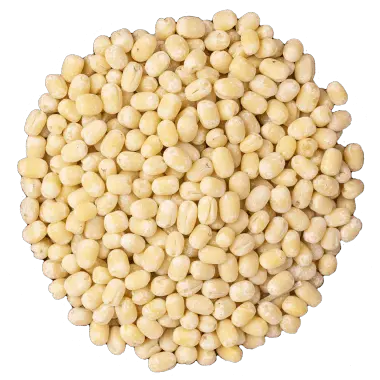
Urad Gota
Chana dal is a type of lentil that is commonly used in Indian cuisine. It is made by splitting and removing the outer layer of a larger black chickpea, revealing a smaller, cream-colored lentil. Chana dal has a nutty, slightly sweet flavor and a firm texture that holds its shape well when cooked. It is often used in soups, curries, and side dishes and is a good source of protein, fiber, and other essential nutrients.
- >> Protein
- >> Fiber
- >> Folate - Vitamin B9
- >> Iron
- >> Potassium
- >> Manganese

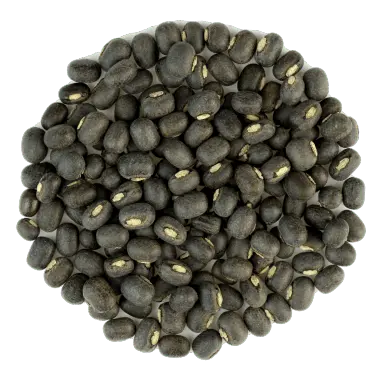
Urad Whole
Chana dal is a type of lentil that is commonly used in Indian cuisine. It is made by splitting and removing the outer layer of a larger black chickpea, revealing a smaller, cream-colored lentil. Chana dal has a nutty, slightly sweet flavor and a firm texture that holds its shape well when cooked. It is often used in soups, curries, and side dishes and is a good source of protein, fiber, and other essential nutrients.
- >> Protein
- >> Fiber
- >> Folate - Vitamin B9
- >> Iron
- >> Potassium
- >> Manganese
